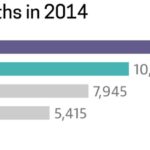As a continuing feature of our work here at the blog, we hope to be able to offer glimpses into what’s going on in the world of health and wellness news that affects you and your family on a monthly basis. For the past few months we’ve focused on seasonal issues, especially as we all began to spend more time outside in the warmer weather.
Now that winter is nearly upon us… Say WHAT? That’s right, the Winter Solstice this year is December 21st, which is not very far away. With that in mind, our latest news and headlines focus on life indoors – even as we hope you will not be stuck there due to weather.
Could Pests, Dust Lower Kids’ Odds for Asthma? In an eye-opening article published at MedLinePlus.gov, the National Institutes of Health’s Web site for patients and their families and friends, it is postulated that early exposure to dust, insects, rodent droppings, and other allergens may protect children against asthma! “Early exposure to pest and pet allergens – cockroaches and mice droppings included – may actually guard children against asthma, a new study of inner-city kids suggests.”
Indoor Air Pollution: We examined this subject in some depth in a previous post, Are You Living in a Toxic Home? However, it never hurts to be mindful of potential toxins in the home. Once again, MedLinePlus.gov offers some insight and information on keeping your home safe and free of toxins.
We usually think of air pollution as being outdoors, but the air in your house or office could also be polluted. Sources of indoor pollution include
- Mold and pollen
- Tobacco smoke
- Household products and pesticides
- Gases such as radon and carbon monoxide
- Materials used in the building such as asbestos, formaldehyde and lead
Sometimes a group of people have symptoms that seem to be linked to time spent in a certain building. There may be a specific cause, such as Legionnaire’s disease. Sometimes the cause of the illness cannot be found. This is known as sick building syndrome.
Mold After a Disaster: Having seen our share of hurricane disasters already this year, it seems wise to mention this subject. Thanks to the Centers for Disease Control and Prevention (CDC), there is a fairly comprehensive expose on mold after a disaster available with a single mouse click on the link above.
People at Greatest Risk from Mold
- People with asthma, allergies, or other breathing conditions may be more sensitive to mold.
- People with immune suppression (such as people with HIV infection, cancer patients taking chemotherapy, and people who have received an organ transplant) are more susceptible to mold infections.
- People with a weakened immune system, especially people receiving treatment for cancer, people who have had an organ or stem cell transplant, and people taking medicines that suppress the immune system, should avoid cleaning up mold. Children under 12 should not enter a building with mold damage.
Possible Health Effects of Mold Exposure
People who are sensitive to mold may experience stuffy nose, irritated eyes, wheezing, or skin irritation. People allergic to mold may have difficulty in breathing and shortness of breath. People with weakened immune systems and with chronic lung diseases, such as obstructive lung disease, may develop mold infections in their lungs. If you or your family members have health problems after exposure to mold, contact your doctor or other health care provider.
Stay tuned for more important snapshots of such timely health news and headlines in future posts, when it’s available and has value to our readers.



